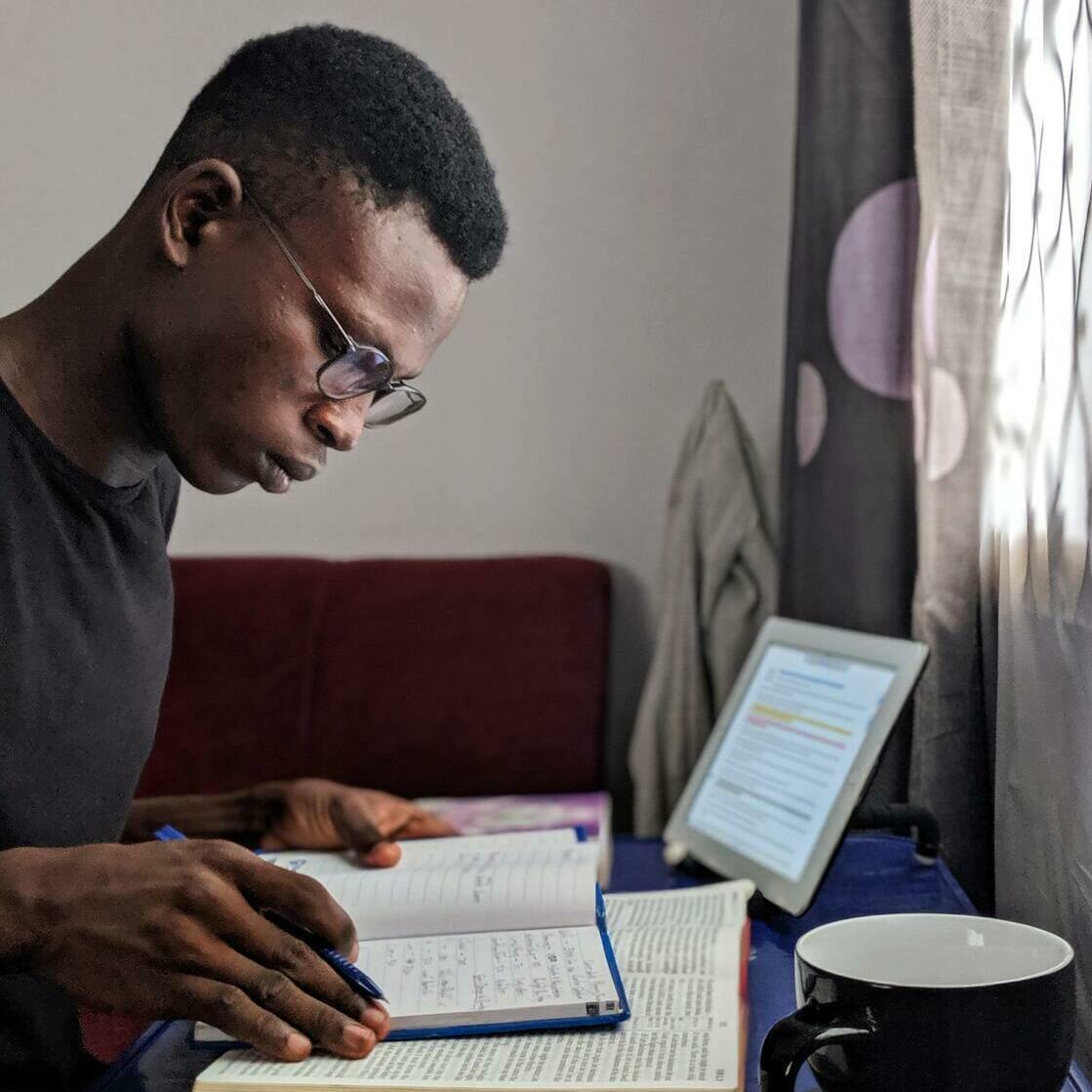WHY STUDENTS NEED
ASPIRATIONAL AFRICENTRIC EDUCATION
THE CRISES HARMING AFRICAN STUDENTS:
EXPULSION, DOWN-STREAMING & LOW EXPECTATIONS

CRISIS: EXPULSIONS
African students in North America hail from many backgrounds: African-American, African-Canadian, Jamaican, Nigerian, Somali, Ethiopian, Eritrean, Trinidadian, Brazilian, and many, many others across the African planet. Despite that massive diversity, they face many of the same acute difficulties arising from conscious and unconscious racial discrimination.
Of all the students the Toronto District School Board expelled between 2011-12 and 2015-16, a staggering 48 percent were African.
CRISIS: DOWN-STREAMING
Then there’s down-streaming—the intentional and unintentional practice of steering African students away from university-track classes and into classes that lead nowhere but out the door.
In Edmonton, various teachers report that African-Canadian students are disproportionately over-enrolled in low-track courses and under-enrolled in academic and advanced classes, and while many community members have been asking the provincial government to record statistics indicating student experience by ethnicity, so far such information remains unavailable.
In Toronto, even though the TDSB ordered the end to streaming in 1999, by 2011, only 53 percent of African-Canadian students took academic courses, compared with 80 percent of Euro-Canadian students and 81 percent of students from all other racial backgrounds.
CRISIS: CLOSED DOORS TO GIFTED CLASSROOMS AND STEM JOBS
As the Boston Consulting Group reports, African students in Toronto are 12 percent of the population, but get to sit in only 3 percent of the desks in “gifted classrooms.” Unless one believes toxic racist myths of genetic or cultural inferiority of all Africans from every African nationality (around 1.3 billion humans), one must face that the current system shafts fully 75 percent of African-Canadian children who are gifted. What a massive loss for them, but also for society, to leave that much brilliance on the floor.
ScienceDaily cites a Harvard Educational Review from a decade ago showing that Euro-American math teachers at largely African schools in the US were more likely to escalate problems than their African colleagues which “may have long-term negative consequences for student performance.”
Students who fare poorly at math can forget most science, engineering, math, and technology (STEM) careers, which according to a PEW Research Centre study about US workers, bring “higher median earnings than those in other, non-STEM occupations. In 2019, median earnings for full-time, year-round workers ages 25 and older in a STEM job were about $77,400. The comparable median for workers in other, non-STEM occupations was $46,900.”
CRISIS: OVERT RACIAL DISCRIMINATION
Sometimes the discrimination totally obvious, as with a York Region school trustee using the N-word against a mother of three, or a TDSB principal reprimanding a student for wearing her hair naturally (unstraightened), or when a principal at an Edmonton Catholic elementary school accused an 11-year-old child of being a criminal gang member for wearing a head-covering, and then banned the child’s mother from the school and called police against her.
Sadly, that’s no surprise: In North America, non-Africans frequently regard African children as older than they are, more sexual than they are, guiltier than they are, and in the case of girls, needing “less nurturing, protection, support, and comfort” than do European girls.
It’s no exaggeration to say that when authorities consciously or unconsciously act on racist beliefs, they are actively or passively derailing the lives of African kids in North America.
CRISIS: DROPPING-OUT IS RUINING LIVES
Given all that, maybe it’s not surprising how high a proportion of African students quit school and never attend post-secondary education. In Toronto, the African-Canadian drop-out rate reached a stunning 40 percent, leading the Toronto District School Board to order that schools work to reduce that rate to 15 percent. Across Canada in 2020, according to a report by CivicAction and the Boston Consulting Group, the drop-out rate for African students is 23 percent, compared with 12 percent for European settler children.
Failure to graduate limits income potential, and therefore length and quality of life. Some immigrant and refugee youth may work to pay their families’ bills, but without high school diplomas, are stuck in low-wage, futureless jobs. As a Statistics Canada Labour Force Survey warns, “high school drop-outs have a harder time finding work than others who were able to follow high school through to completion and perhaps to continue in the education system.”
Dropping-out of high school is linked with criminality, which degrades quality of life for drop-outs, their families, their communities, and society at large.
It’s even worse for immigrant and refugee children. Their drop-out rates rose according to their age of arrival. Those who were 15 or older when they arrived face a 22 percent failure to graduate rate. Many refugees suffer from undiagnosed and untreated trauma arising from whatever caused them to leave their homelands, which the American Psychological Association warns places them “at risk for dropping out of school, being unemployed, and possibly winding up in prison.”
The problem is massive. From coast to coast to coast, there are about 1.2 million African-Canadians whose backgrounds range from Somalia, Ethiopia, and Nigeria to Haiti, Jamaica, and the USA. If African-Canadians were a city, they'd be the third largest in Canada (after pulling nearly 10 percent of Toronto’s population). Abandoning all the human potential of a city of that size would be a clear demonstration of catastrophic negligence and a disaster for the nation.
SOLUTION: AFRICENTRIC EDUCATION, AND AFRICENTRIC TEACHERS OF ANY BACKGROUND

Imagine an eco-friendly, bio-technological, educational device that can slash school-quitting by as much as 39 percent and boost post-secondary enrollment by 6 percent... and it's a device that kids love? If your school or district could acquire such devices, wouldn't it?
It turns out that “device” is people.
In the US, African children who had at least one African teacher during grades 3 through 5 were 29 percent less likely to quit school—and among impoverished boys, that risk fell by 39 percent.
But beyond reducing harm to African students, what massive benefit do African teachers provide for them?
As Andre Perry writes about a study by Stanford University’s Thomas Dee, African boys and girls in New Orleans with an African teacher “scored 3 to 6 percentile points higher on standardised tests in reading than those who did not [have an African teacher]. Dee found a similar increase in the math scores of [African] students taught by a [African] teacher.”
And what about the effect of African teachers on enrollment in post-secondary education? Using results from the Tennessee STAR classroom size experiment, researcher Seth Gershenson and his colleagues found that African students "randomly assigned to at least one [African] teacher in grades K-3 are 9 percentage points (13%) more likely to graduate from high school and 6 percentage points (19%) more likely to enroll in college than their same-school, same-race peers."
Is there any other intervention that has been proven to hold such life-changing power?
As educators Erica and Michael Hines wrote in Time, “The best contemporary research reinforces what historical anecdotes reveal,” that in the US, African teachers are, “by nearly every metric, more successful at supporting the achievement and well-being of [African] children.”
When teachers have conscious or unconscious racist biases, when they can’t “talent scout.” They don’t encourage excellence among African kids because they don’t expect it can exist. At best, they may hold what some call “the soft bigotry of low expectations.”
High expectations of students correlate with higher student performance. If teachers think students can do great things, they’re more likely to live up to those expectations. Africentric teachers (whether they’re African or from any other background) are far more likely to see the potential in African kids than non-Africentric teachers.
THE VALUE OF AFRICAN TEACHERS FOR STUDENTS OF ALL BACKGROUNDS
A major US study of more than 157,000 kids called “The Importance of Minority Teachers: Student Perceptions of Minority Versus White Teachers” found that Asian students “have particularly favourable perceptions” of African teachers, and students “in the ‘Other’ racial category also report that Black teachers are particularly caring.”
While all teachers are less likely to “punish students of their own race by removing them from the classroom or the school,” Education Week reports that African teachers are “also slightly less likely” than other teachers “to punish students of other races” with “suspensions, detention or expulsions.” Is that difference due to low standards, or because of empathy and a belief in the redeemabilityof children?
The students in that study also said that African and Latinx teachers are clearer, and that African teachers “hold students to high academic standards and support their efforts.” The research suggests that African and Latinx teachers may have greater empathy for students who frequently endure arbitrary, ill-informed, and sometimes cruel authority (perhaps due to their own experience with such authority). African students in US classrooms “have particularly positive perceptions of [and benefit from] Black teachers.” The headline on the US National Public Radio story was clearer: “Study Finds Students of All Races Prefer Teachers of Color.”
To be absolutely clear, no one is better than anyone else because of race or any other aspect of identity, and there are countless examples of teachers from all backgrounds who do exceptional work with their students. It's also true that young people constantly face authority—including arbitrary and sometimes unfair authority—with vast power over their advancement, recognition, safety, and even their grooming. African adults routinely face such such toxic conditions in their professional and public lives, which may make them more empathetic and responsive to students' plights.
Fortunately, anyone who wants to grow in empathy can do so, and that's one of the many, many ways that Africentric education adds massive value for teachers. As Science and Scientific American note, one of the most obvious pathways for growing empathy is through studying literature, which also boosts emotional intelligence.
Fortunately, teachers and students in classes other than English can also grow in empathy and emotional intelligence. It's true that genuine empathy cannot exist without sincere respect, and genuine inclusion never exists without sincere admiration. But by learning and teaching aspirational, Africentric examples of brilliance in every field, all teachers can grow in appreciation of the full scope of human potential, and thereby help all students rise.




